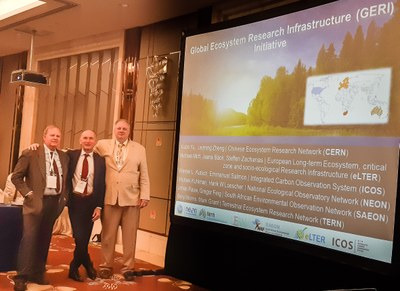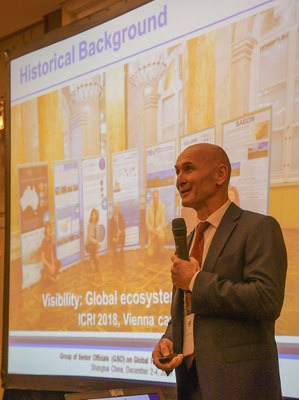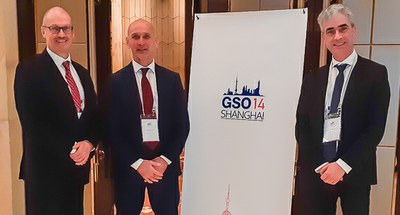G7's GSO accepts Global Ecosystem Research Infrastructure initiative as a use case during high level meeting in China
Improving knowledge about ecosystem functioning is essential for addressing the crucial challenges of managing limited natural resources in a sustainable manner, to assure long-term human wellbeing on the planet. The Global Ecosystem Research Infrastructure initiative (GERI) aims at establishing indispensable infrastructures across continents. GERI was discussed in a high level conference of the G7 Group of Senior Officials (GSO) in Shanghai last week, and approved as a GSO use case.
The potential for increased international cooperation on Global Research Infrastructures (GRIs) has for a long time been recognized during international high-level meetings on science policy. At the first G8 Science Ministers' meeting in 2008, the Group of Senior Officials on global research infrastructures (GSO) was established. GSO´s mandate includes taking stock, spotting research infrastructures of global interest, and identifying possible new areas of cooperation.
eLTER co-founded the Global Ecosystem Research Infrastructure Initiative (GERI) in the ILTER context and in collaboration with five major ecosystem RIs around the globe (NEON/USA, ICOS/Europe, CERN/China, SAEON/South Africa, TERN/Australia). Three think tank workshops were held in Australia (2016), China (2018) and the USA (2019). The primary intention was to catalyze collaboration on critical issues of common interest such as organizational requirements and system engineering, human resources in RI operations, essential environmental observations, integrated RI designs and addressing the challenge of global coverage in ecosystem research. The fruitful workshop discussions led to the realization of a historical chance for the development of world-wide RI capability to tackle new, socially- and scientifically-relevant questions through harmonized and interoperable RIs spanning across the continents. Suitable strategic frameworks were screened, where GERI could be presented as a case study. This fortuitously coincided with the recently adopted GSO approach to develop recommendations for Global Research Infrastructure (GRI) development triggered by such case studies.
At the 14th GSO meeting in Shanghai (2-4 December 2019), the GERI case was presented to GSO by Michael Mirtl (EC delegation & eLTER), Hank Loescher (NEON), Johan Pauw (SAEON) and Xiubo Yu (CERN), underpinning the global momentum and their respective RIs’ strong commitment to GERI. The presenters advocated for environmental observation and research and therefore needed excellent research infrastructures, just as in physics and astronomy. Improving knowledge about ecosystem functioning to inform policy is vital for addressing the crucial challenge of managing limited natural resources in a sustainable manner to assure long-term human well-being on the planet.
As a result, the GSO approved GERI as a use case. The discussions in Shanghai underpinned that successful global RIs need complementary global strategic frameworks and – ultimately – global funding schemes to succeed. The further development of GSO scope and partnership will be triggered by use case requirements towards stakeholders and will benefit the successful implementation of GERI.

From left to right: Johan Pauw (SAEON, South Africa), Michael Mirtl (eLTER, Europe) and Hank Loescher (NEON, USA) after presenting GERI to the GSO

Michael Mirtl (eLTER) presenting GERI milestones to the GSO (in the background is a slide of the ILTER & GERI roll-up cluster at ICRI 2018 in Vienna castle, hosted by the Austrian Ministry for Science and Education)

Delegation of the European Commission at the GSO14 meeting in Shanghai. From left to right: Adam Tyson (DG R&I, Head of Unit for Research Infrastructures), Michael Mirtl (eLTER ESFRI Coordinator, UFZ/EAA, Germany/Austria), Pierre Quertenmont (DG R&I, GSO Secretary)